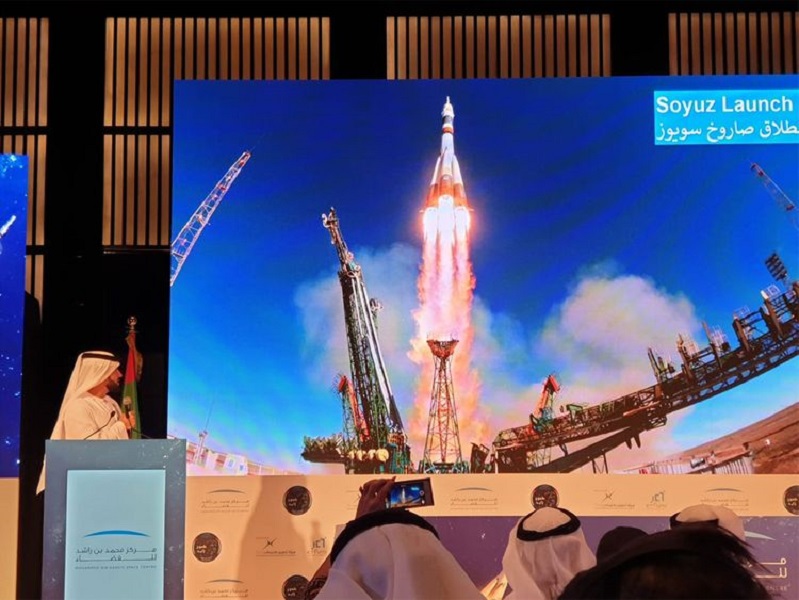Revealed: What Emirati astronaut Hazza Al Masouri will take to space
By Aliheydar_Rzayev Tuesday, 27 August 2019 1:34 AM

The UAE's first Emirati astronaut Hazza Al Mansouri will be rocketed to the International Space Station (ISS) at 5.56pm on September 25 to make the UAE the 19th country to visit the space station, officials announced on Monday, exactly 30 days before the much-awaited launch.
Hazza will be on the ISS for an eight-day space expedition as part of the UAE’s Astronaut Programme.
Hazza will be with crewmates Nasa astronaut Jessica Meir and Russian commander Oleg Skripochka as they lift-off from the Baikonur Cosmodrome in Kazakhstan onboard the Soyuz MS-15 spacecraft.
Hazza will conduct a series of experiments, including a few on himself to check how his body will react to zero-gravity.
Pre-spaceflight results and samples will be compared with results when he returns to Earth.
Details on the stages of the mission before, during and after the launch were also announcrd on Monday.
"This is the first comprehensive space programme that develops national expertise to have manned missions to space which will help to promote better life on earth. We go to space to make our lives here better," said Salem Al Merri, Assistant Director-General of the Mohammed Bin Rashid Space Centre (MBRSC) and head of the UAE Astronaut Programme.
"For almost 20 years the ISS has receiveed more than 230 astronauts from 18 countries around the world. Hopefully the UAE will be the 19th country."
Hazza will conduct 16 biological, physical and gelological experiments that are not possible to be done on Earth.
Hazza will also have five video calls with the UAE to answer questions from the public, especially the youth.
He will also give three radio communications with ground control.
Asked what Hazza's role will be during take-off, Al Merri said: "Flight engineer one in this case is Nasa astronaut Jessica Meir who gets an additional training of up to a year and a half to prepare her for that role.
"And for the second flight engineer, which is Hazza Al Mansouri's role, they get slightly less training. They do have certain procedures that they participate in during the flight itself.
"They are trained on all the emergency procedures and also trained to assist the commander with in doing activities that he requires," he said.
"They also have to be knowledgeable of all the systems of the Soyuz and they have to be able to support any of the crew members during any procedures that we would say is off-nominal and even in nominal situations," he added.
What Hazza will bring to space:
- 100 per cent silk UAE Flag
- 30 seeds of Al Ghaf trees
- Materials for the scientific research such as inflatable balls representing Mars and Earth
- Emirati food
- Personal belongings including pictures of his family and other personal items
- Photo of Shaikh Zayed Bin Sultan Al Nahyan with the Apollo 17 Team
- Quran
- Copy of the 'Qissati' of His Highness Sheikh Mohammed Bin Rashid Al Maktoum, Vice President and Prime Minister of the UAE and Ruler of Dubai
Khaleej Times




























Add new comment